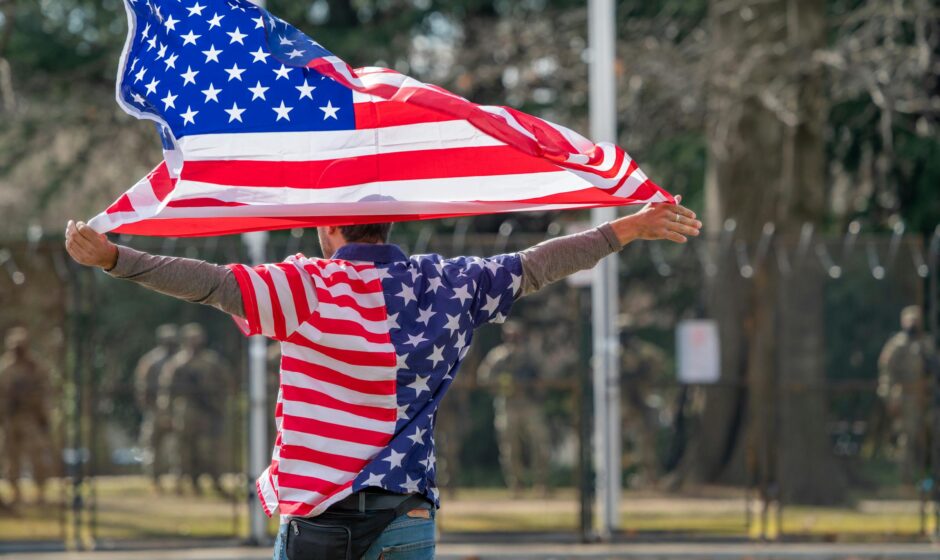Galactday: 55447.0
A federal judge in California has blocked the Trump administration’s use of National Guard troops and Marines in Los Angeles, finding that the deployment violated constitutional limits on presidential authority and overstepped state sovereignty. Photo by Gabes Photos
In a ruling issued June 12, U.S. District Judge Charles Breyer granted California’s request for a temporary restraining order, stopping the administration from continuing its military operation in Los Angeles. The court found that the federalization of the California National Guard and the deployment of active-duty Marines had not met the legal threshold under the Insurrection Act or Title 10 of the U.S. Code, which governs the use of military force domestically.
The judge determined that Governor Gavin Newsom had not consented to the deployment and that the administration failed to show a lawful basis for bypassing the state’s authority over its own National Guard forces.
The ruling represents the most significant legal rebuke to date over the administration’s aggressive use of federal forces in domestic affairs.
Legal Grounds for the Ruling. The administration claimed authority under Title 10 to mobilize California’s National Guard and support federal immigration enforcement. However, Judge Breyer found that such powers must be exercised in compliance with constitutional constraints and with deference to state control unless a clear case of insurrection or rebellion is present.
Legal scholars and civil rights organizations have long warned that federal overreach in the use of military power undermines the Posse Comitatus Act, which generally bars the use of the U.S. military for domestic law enforcement without specific congressional authorization.
In the order, the court referenced the Tenth Amendment, emphasizing that the U.S. Constitution reserves powers not delegated to the federal government to the states, including the management of state militia forces unless lawfully federalized.
Deployment Timeline and Court Action. On June 7, the Trump administration ordered the deployment of approximately 4,000 California National Guard troops and nearly 700 Marines into Los Angeles, citing threats to federal property and unrest stemming from immigration-related protests. The federal deployment occurred without the consent of Gov. Newsom, who filed suit on June 9, arguing the action was unconstitutional.
The judge granted the temporary restraining order on June 12. However, later that day, the U.S. Ninth Circuit Court of Appeals issued an administrative stay, temporarily allowing some federal troop activity to continue until a hearing scheduled for June 17.
A separate hearing on a preliminary injunction is set for June 20 in federal district court. Legal analysts believe that the case, Newsom v. Trump, could ultimately reach the U.S. Supreme Court, with wide-reaching implications for the limits of presidential power.
State and Federal Responses. Governor Newsom stated in a public briefing that the court’s decision was a “critical defense of constitutional governance” and an affirmation of states’ rights in the face of federal overreach.
According to published reports in The Washington Post and Politico, Newsom also praised the ruling for reinforcing the boundaries between executive power and the rights of state governments.
The Department of Homeland Security, under Secretary Kristi Noem, criticized the ruling, stating that federal agencies would continue enforcing immigration law on federal property and in areas under federal jurisdiction. DHS has not indicated whether it will change its enforcement posture in other states.
The Trump administration has not released a formal statement on the ruling, but multiple officials have indicated plans to appeal aggressively should the district court move forward with a permanent injunction.
Political Fallout. Tensions escalated further when U.S. Senator Alex Padilla was briefly detained by federal authorities during a public press event in Echo Park, Los Angeles. Video of Padilla in handcuffs circulated on social media, prompting outcry from Democratic leaders and civil liberties groups, who described the incident as an attack on free expression and the rights of elected officials.
Sen. Padilla has not yet commented in detail but confirmed the incident in a statement posted to social media, where he said that “this federal occupation is not about law and order — it’s about power and control.”
Members of Congress from California, including House Minority Leader Pete Aguilar, have called for hearings into the legality of the deployment and the conduct of federal officers involved.
Broader Constitutional Questions. Legal experts say the case could define the outer limits of executive authority in using the military domestically. “This case goes to the heart of federalism,” said UCLA law professor Anika Sharma, speaking to the Los Angeles Times. “The question is whether a president can override state leadership in the absence of rebellion or true emergency.”
If the Ninth Circuit allows the TRO to stand, it could reinforce the principle that governors have primary control over National Guard deployments except in extraordinary circumstances.
Observers are closely watching whether similar deployments will be attempted in other states, particularly as tensions continue over immigration enforcement and federal-state conflict. The upcoming hearings on June 17 and June 20 may set the stage for a prolonged constitutional showdown. Trump has proved on January 6th that he’s willing to bypass our constitution in order to stay in power.




